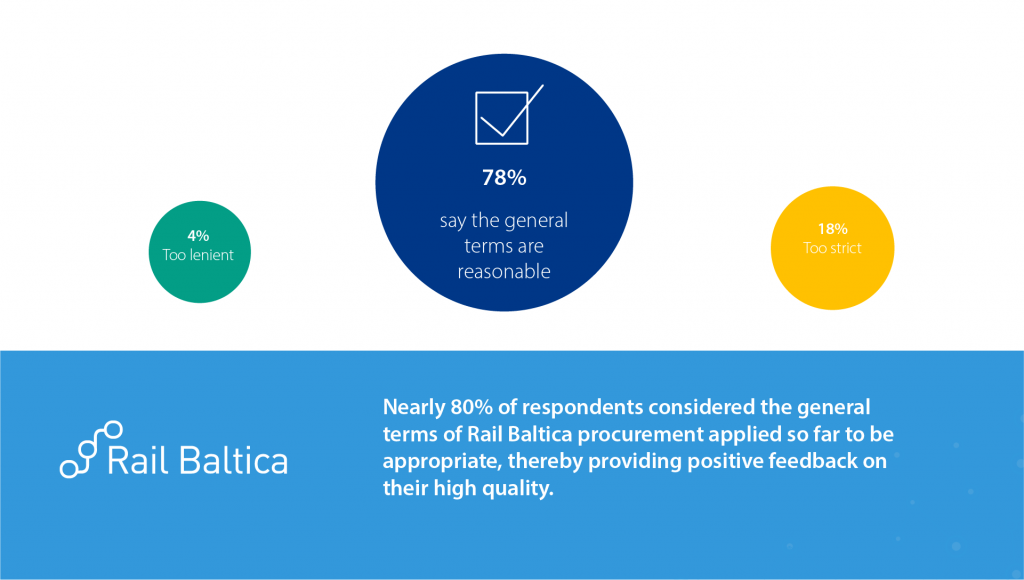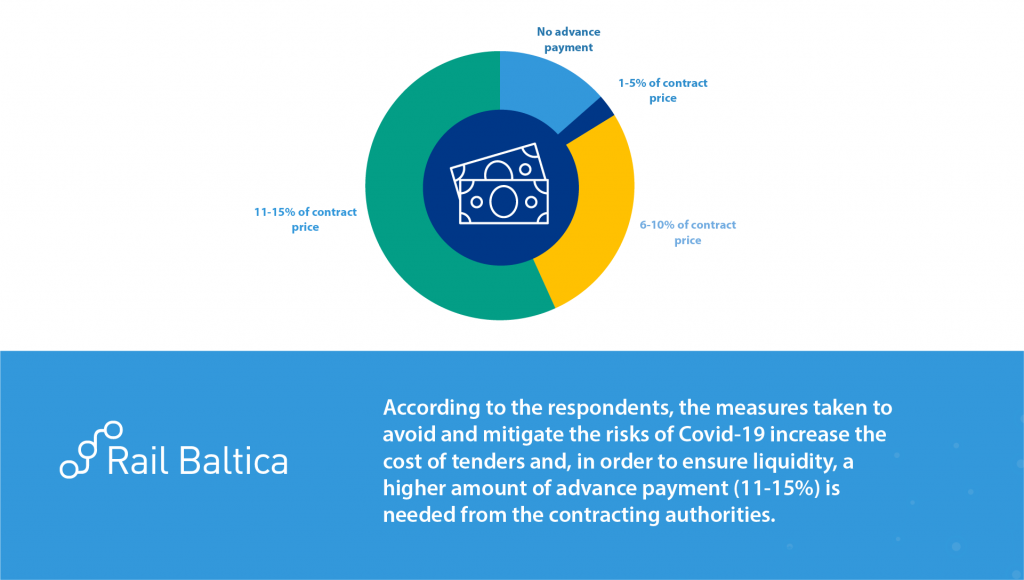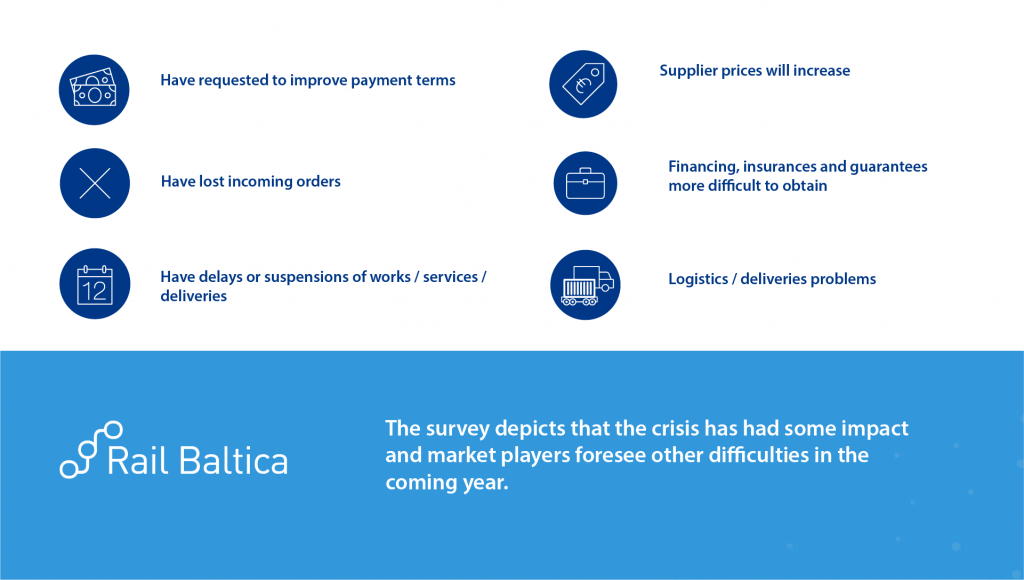The Rail Baltica joint venture RB Rail AS has conducted a global market survey* aimed to collect feedback from the current and future potential contract partners on the current state of the market, Covid-19 impact, and to gather recommendations for subsequent Rail Baltica project tenders. Overall, 77 companies from Europe and beyond participated in the survey. 80% of the companies evaluate Rail Baltica procurement conditions positively.
The survey focused on the vision of the material suppliers, service providers, and contractors, considering the current market situation and short-term future scenarios. In addition, questions about the procurement and contract conditions to be implemented in the Rail Baltica project were raised, with recommendations for the qualification of bidders and the evaluation of tenders.
“Nearly 80% of respondents considered the general terms of Rail Baltica procurement applied so far to be appropriate, thereby providing positive feedback on their high quality. This is a very positive and high evaluation,” said RB Rail AS Chief Procurement Officer Kristjan Piirsalu.
The survey also revealed that suppliers would rather prefer participating in value-based tenders with other criteria in addition to price, rather than purely price-based tenders. Price-based tenders require a precise and detailed technical description by the Contracting Authority, a good understanding of the entire range of solutions available on the market, at the same time the evaluation criteria also indicates the focus areas most relevant for the contracting authority where the cheapest solution may not provide the best end solution required.
Regarding to the terms and conditions of the tender evaluation, the survey showed that the assessment conditions applied to the most important Rail Baltica procurement procedures, which include not only cost but also other important criteria such as methodology, risk mitigation, time schedule quality, environmental aspects, safety, to name a few, and that the practice that the Rail Baltica project is developing mostly meets the expectations of suppliers also.
According to the respondents, the measures taken to avoid and mitigate the risks of Covid-19 increase the cost of tenders and, in order to ensure liquidity, a higher amount of advance payment (11-15%) is needed from the contracting authorities. Prepayment principle has already been implemented in some contracts and this practice will continue.
“Looking at the results of the survey, we see that the practice and requirements of Rail Baltica project procurement largely meet the expectations of market participants,” noted Piirsalu.
“However, the responses of market participants also confirm our understanding that the crisis has had some impact and market players foresee difficulties in the coming year. To address the concerns, we have already taken steps to renew the Global Project procurement policy and to create additional flexibility in the qualification requirements. We will maintain the practice of pre-procurement market research to continue having the most up-to-date information on the market condition.”
To the question of whether the company has experienced negative effects of the Covid-19 crisis in the past 8-12 months, most of the participants replied that the biggest impact was due to suppliers: the disruption of supply chains, the exchange of suppliers, the shortening of payment deadlines applied by suppliers, and price increases. The collected responses will serve as an important input for further improvement of Rail Baltica procurement and contract conditions.




